Politics & Security
Not-So-Random Yoko Mada: An Interview with the YouTube Sensation
Published
7 years agoon

East Asia is in the midst of tremendous geopolitical changes. Japanese politicians have preferred to play it safe, frustrating Japanese conservatives who see the country slowly frittering away the Japan-United States alliance in an attempt to placate the communist dictatorships in China and North Korea.
With the notable exception of author and former television announcer Yoshiko Sakurai, the right-leaning camp in Japan has long been a man’s domain. Not anymore. Yuriko Koike is governor of Tokyo, Tomomi Inada is minister of defense, and Mio Sugita is a rising star in parliamentary politics from Kobe. These women are leading the conservative charge inside the political world.
On the internet, though, no conservative is busier, more popular—or funnier—than Yoko Mada, known to her legions of fans as “Random Yoko.”
Mada was born in Fukuoka, Japan, in 1985. A graduate of Kansai Gaidai University in Osaka majoring in English, Mada began posting videos to YouTube in 2006. In 2011, she won the first YouTube NextUp award. Her YouTube channel on politics and history, randomyoko2, has more than 50,000 subscribers and has been viewed more than 6.5 million times. She has appeared in numerous print, online, and television outlets, and has published a book on the subject of patriotism: Shin Aikokuron.
Based in Fukuoka, Mada was recently in Tokyo, and sat down with Japan Forward to answer questions about her life, her work, and her goals for the future.
First, the most important question: You are a big dog lover, it seems?
(Laughs) Yes! I have one Shiba-ken, named Taro. I posted some videos of him when he was a puppy. He’s so cute!

There must be millions of cute animal videos on the internet, but I don’t know of many videos by someone fluent in both Japanese and English and able to deliver in-depth analysis of complex historical and political issues in either language. Did you study English overseas?
No—but I get asked that question a lot! When I was younger, I was captivated by the sound of American English. By the language itself. I loved American movies and TV shows and listening to American music. But I learned it mainly by chatting on the internet. It’s such a nerdy way to learn a language, but it worked!
Was English always your best subject in school?
Surprisingly, no. I hated it, actually. But then one day I got fed up with not being able to overcome my inability to learn English. So I picked up my English grammar book and mastered it in one week.
One week?!
One week. I did kendo in school, and my martial arts style is probably the same as my language-learning style. I never wait for someone else to take the initiative. I set my mind to do something, and then I do it 100%.
That is truly impressive. You are increasingly becoming a respected pundit on historical and political issues. Were you interested in those things from a young age?
No again! I was basically non-political in college. I was actually anti-Japanese, to tell you the truth. I wanted to cast off my Japanese identity and become American in fashion, speech, mannerisms, everything. I wanted to be able to choose my own country, regardless of where I was born and raised. I like Americans. They’re down to earth, they give you their opinions directly. Even American women have strong views and just come right out and tell you what they think. I liked American independence of thought and expression.
As a typical product of the Japanese education system, I was indoctrinated to dislike Japan. I took in the anti-Japanese propaganda from the schools and the media, and I believed it.
In your book, you appear on the cover in a kimono. You obviously changed your mind about Japan somewhere along the way! When did that happen?
It was in 2012. It happened almost overnight. I saw on the news that Chinese people were rioting in the PRC over the Senkaku Islands. I couldn’t understand why. Their actions were only harming their own country—it seemed counterproductive. It was clearly a ginned-up controversy orchestrated by the Chinese government. Anybody could see that. I asked my father what was going on, and he told me. I was amazed.
My father is a very conservative man. He has a whole library of books on history and politics. I always made fun of him for that, and thought he should just get rid of all the books that he had read and that were just collecting dust. But after the Chinese riots, I wanted to know the history that had led to that point, so I went into my father’s library and read everything in it on politics and history. Everything. I chose a different topic each day and plowed through volume after volume.

Just like when you learned English grammar in one week.
Yes. I used to think that politics and history were beyond my understanding—too complicated, too involved. But as I read I began to see things very clearly. Shoichi Watanabe-sensei’s books in particular were invaluable. It all made sense. As Japanese, we have all been lied to. I felt betrayed, by the media, by the education system. I was a teacher’s pet in school and I used to love NHK. Looking back, I can see that I just blindly accepted ideology as fact. Almost everyone in Japan did, and does, the same thing. Until recently.
One of your most powerful videos is called “Aikokushin,” “patriotism.” When did you make that?
It was late in 2012, I believe. After the turmoil of realizing that so much of what I thought I knew had been false, I had to get off my chest the way I really felt. That video got picked up by other outlets and really seems to have caught on.
Your political views changed. What about you, personally?
I haven’t changed as a person, although I’ve come to see the world in a completely different way. Also, by discovering the truth about the past, about Japan, I was able to embrace being Japanese for the first time in my life. I no longer wanted to become an American. I was suddenly proud—and grateful—to be Japanese.
It was from that point that I wanted to work with the US, with patriotic Americans, to fight back against the left-wing brainwashing we all receive through the schools and media in both countries.

You are a big supporter of Donald Trump. When did you start following him?
It was actually soon after he announced his candidacy, around September of 2015. When he began to speak of the US-Japan alliance in the summer of that year, I realized that Trump and his supporters in the US were Japanese conservatives’ natural allies. I knew that Trump was serious, even though he was dismissed by nearly everyone in the political establishment. Trump was going to fight them, fight the globalists and the politically-correct powerful elite. We were fighting the same fight in Japan. Making America great again in the way Trump was talking about would help Japan become great again, too.
You seem to have come full circle since your school-age years.
I loved the US when I was younger, but not in the right way. The globalists always tell us—and I thought this way, too—that we can become better friends with people in other countries by throwing away our own national identities. I hated being Japanese. I hated being Asian. I hated being a woman, even. I was a tomboy and thought that I could get to know boys better by being more like them. That is just one silly example, but it shows how much socialism, communism, cultural Marxism, Wilsonianism, anti-traditionalism have come to dominate both Japan and the US.

Your eyes have really been opened, it seems.
Yes. What happened was that I became an adult. I learned to know and love and tell the truth. I accepted who I am. I stopped being a feminist and became a woman. It was as simple as that. I used to suffer from depression. I was always trying to stamp out who I am inside. Now I am me, and I am happy.
I want to be a role model to everyone else in Japan. Our ancestors were very sophisticated. They knew how to survive in the world by learning other languages, learning about other cultures and ideas, without throwing away their own Japanese heart and soul. One can speak English without becoming American. One can support the US-Japan alliance as a Japanese. We need to be equals with other countries. We cannot always be masochistic about who we are.
I see myself pushing the WAKE UP button inside of Japan. There is nothing more convincing than truth.
It seems Mada’s path to becoming Random Yoko was not so random after all.
You may like
-


[Speaking Out] Trump Comeback: Why Japan Needs to Be Ready
-


EDITORIAL | National Foundation Day: A Call for Courage and Determination
-


Remaking Hong Kong: The Order from Beijing is to Brainwash Students
-


After Covering Up the Coronavirus Outbreak, China Scouts for International Praise
-


[Mythbusters] 'Washington Post’ Engages Toro Toro Bomber to Attack Japan
-


Trump Invites Kim Jong Un to the White House as North Korean Leader Hails ‘New Future with the U.S.’
5 Comments
You must be logged in to post a comment Login
Leave a Reply
Cancel reply
Leave a Reply
You must be logged in to post a comment.




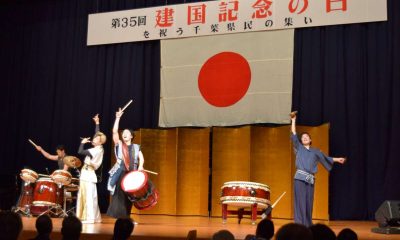

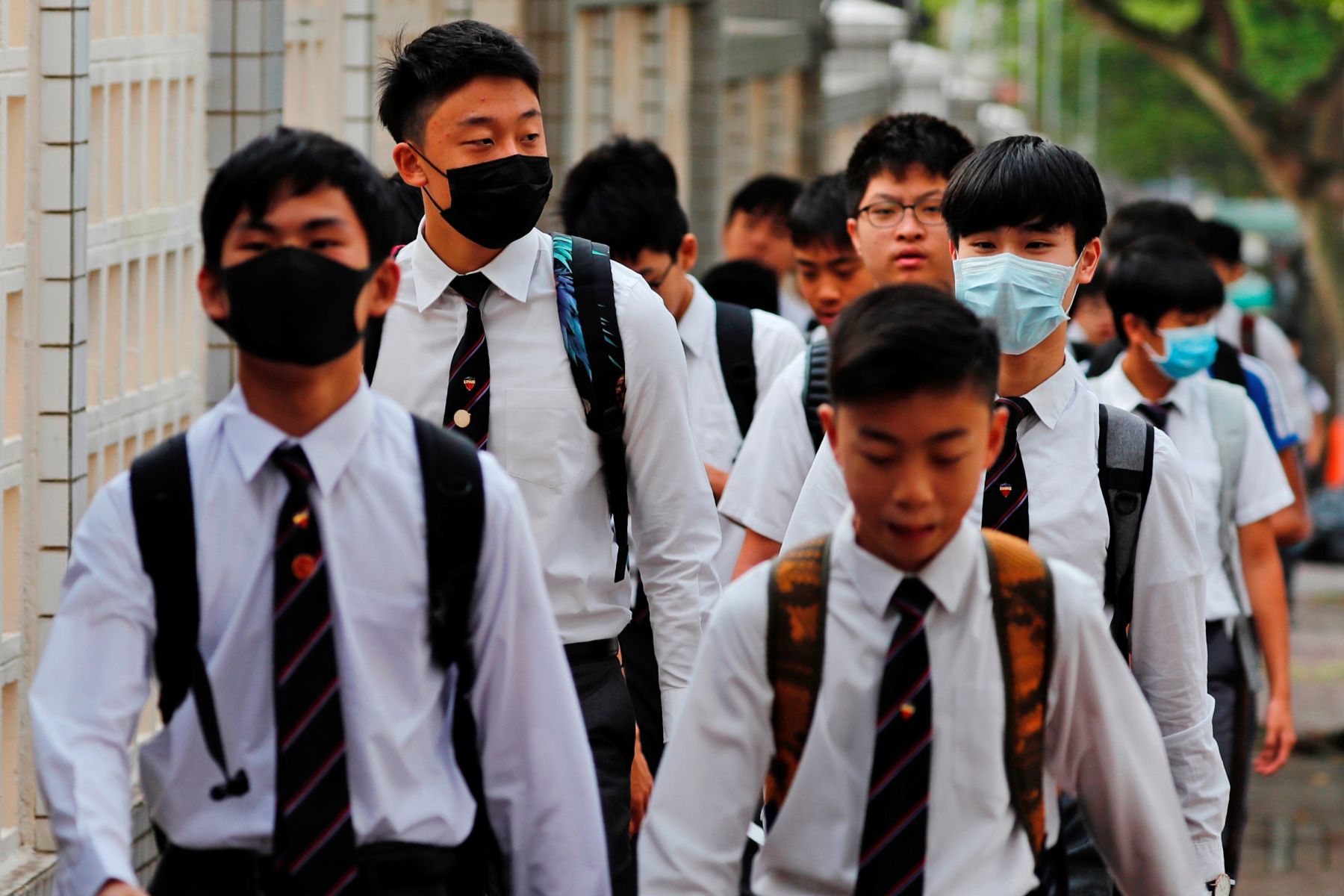
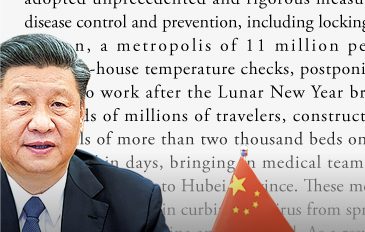
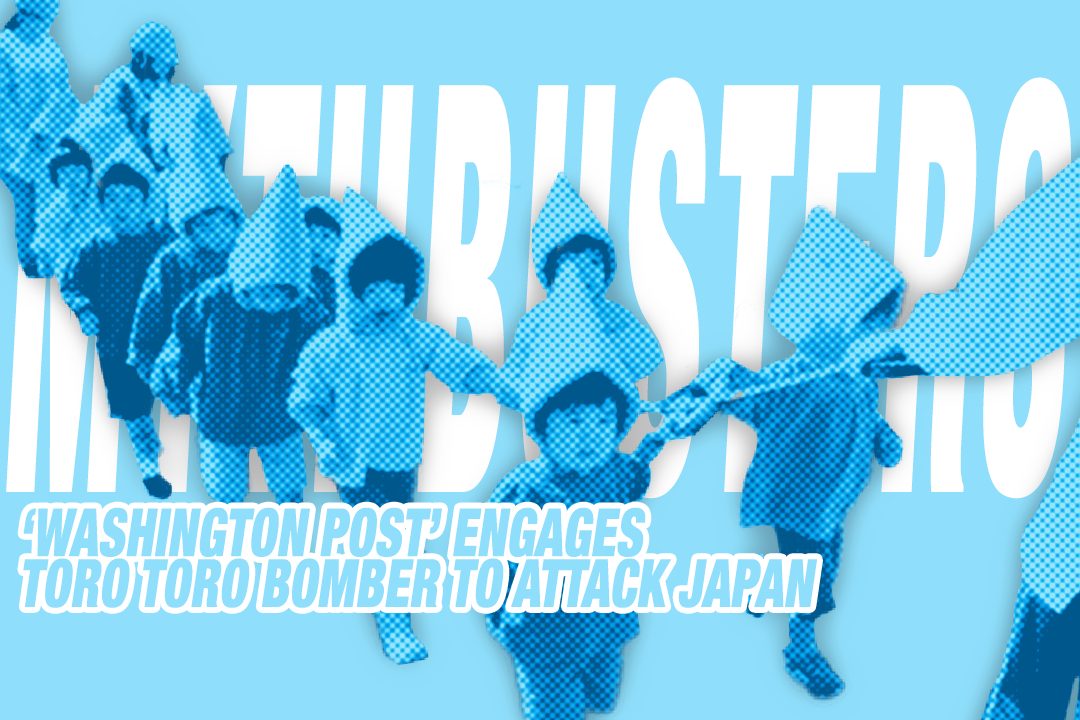
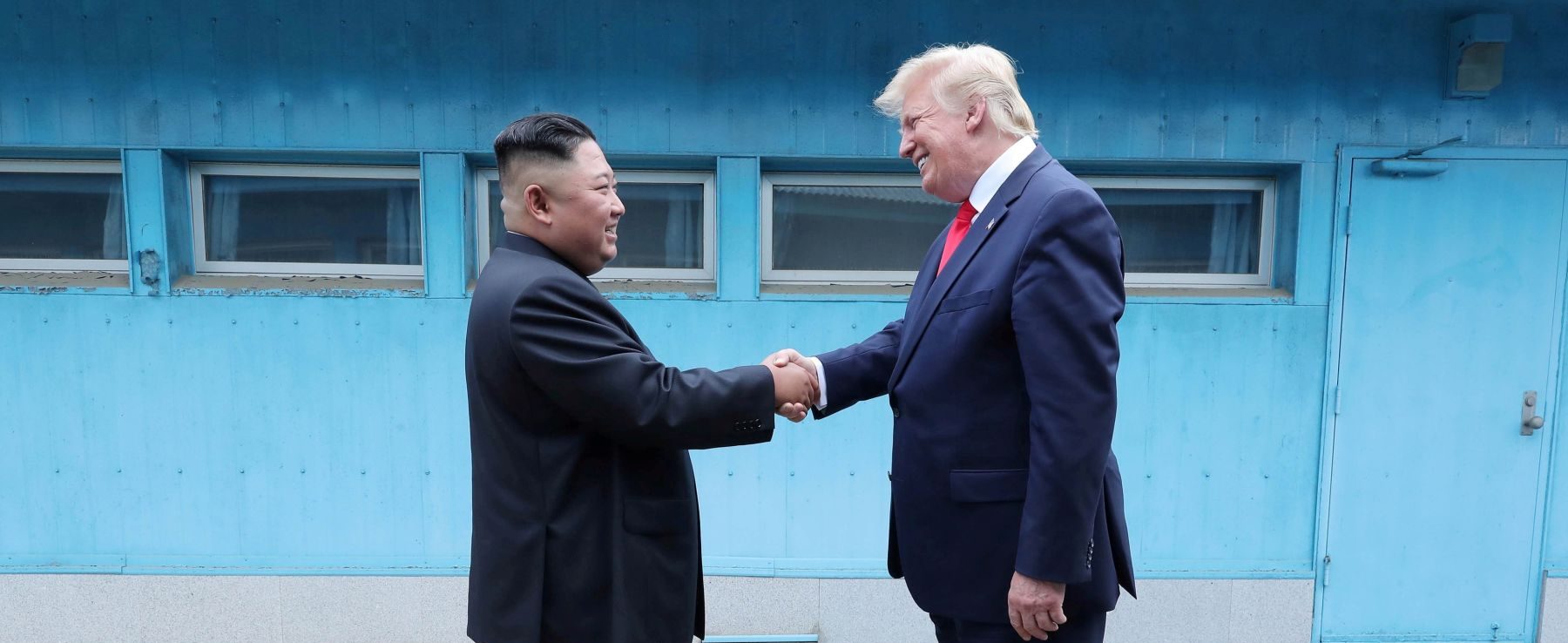

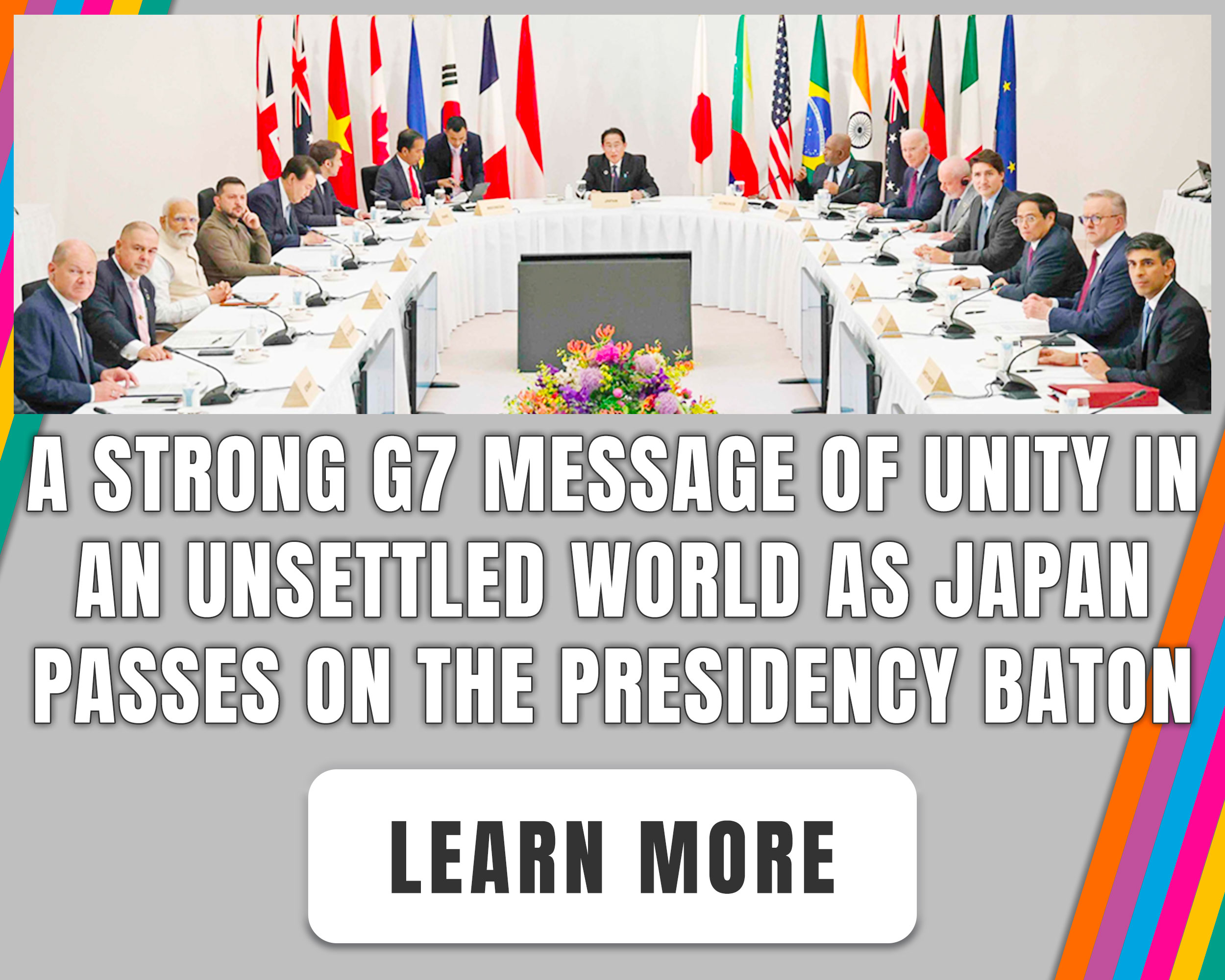
Anaximanders Ghost
June 4, 2017 at 5:05 pm
"Webmaster",
It must be quite isolated in Iruma, staring all day at the Taniguchi San guo sign all day across the street, however that is no excuse for the ridiculous response you and now "Shinji" are posting.
First, I've personally emailed Mada San for comment and clarification as you could have easily done, and found that the videos (a) Were posted by herself as part of her earlier Weblogs on Japanese items Westerners usually ask about. And (b) the male in the video was not even her boyfriend as you attempt to insinuate above but her college friend that also did some Weblogs.
So you can't even take the time to verify basic facts and somehow expect to be taken seriously. Again, posting from Iruma apparently doesn't expose you to strong enough criticism of your work to help you develop your skills.
Second : The very premise of your accusations, defamatory in nature now that the facts are known (and I do hope Yoko reads this and initiates a lawsuit), are reflective not of modern Japanese conservative values, but of the more hard line leftist radicals of a bygone era that demanded "racial purity".
These are tropes that radical leftists attempt to bandy about as if they were from conservative. This begs the question.....
..... Are you really a conservative who missed the train and believes in racist practices of a bygone era promoted by extreme leftist groups? Or are you, as is indicated by your base language and lack of rational thought, a simple leftist reactionary trying desperately to shame an effective woman who is very effective at reaching English speaking audiences?
Or perhaps just a mysogynist, bitter because Japanese women of the younger generation are running circles around the intellectualy decrepit "GHQ Babies" that are unable to communicate effectively in English and croak in vain hoping for the Ghost of MacAuthur to rise and save them from the ruin they have made Japan over the last 20 years?
No matter which way you look at it, "Webmaster" and "Shinji" are the real embarrassments to both Japan, and critical thinkers worldwide.....
... They also need to study English a bit more before they post.
webmaster
June 3, 2017 at 12:20 am
Very much disappointed to see her video on YouTube which his caucasian boyfriend took with her in a love hotel posted onto YouTube by Yoko Mada.
Shameless woman is talking about Japanese historical issues and politics? What a JOKE !!
Legitimacy of Japan Forward is now questionable.
See the video.
https://www.youtube.com/watch?v=0m2v9ctz-So
webmaster
June 4, 2017 at 3:08 am
One more video found.
https://www.youtube.com/watch?v=_QEVZoCl3mU
Shinji
June 4, 2017 at 8:18 am
I watched the videos thanks to your post above. Her indecent video clips can degrade and denounce the other patriot Japanese people. How shameful she is!
Aryeh Goldman
August 5, 2017 at 4:49 pm
Shinji and Webmaster,
Where did you go?